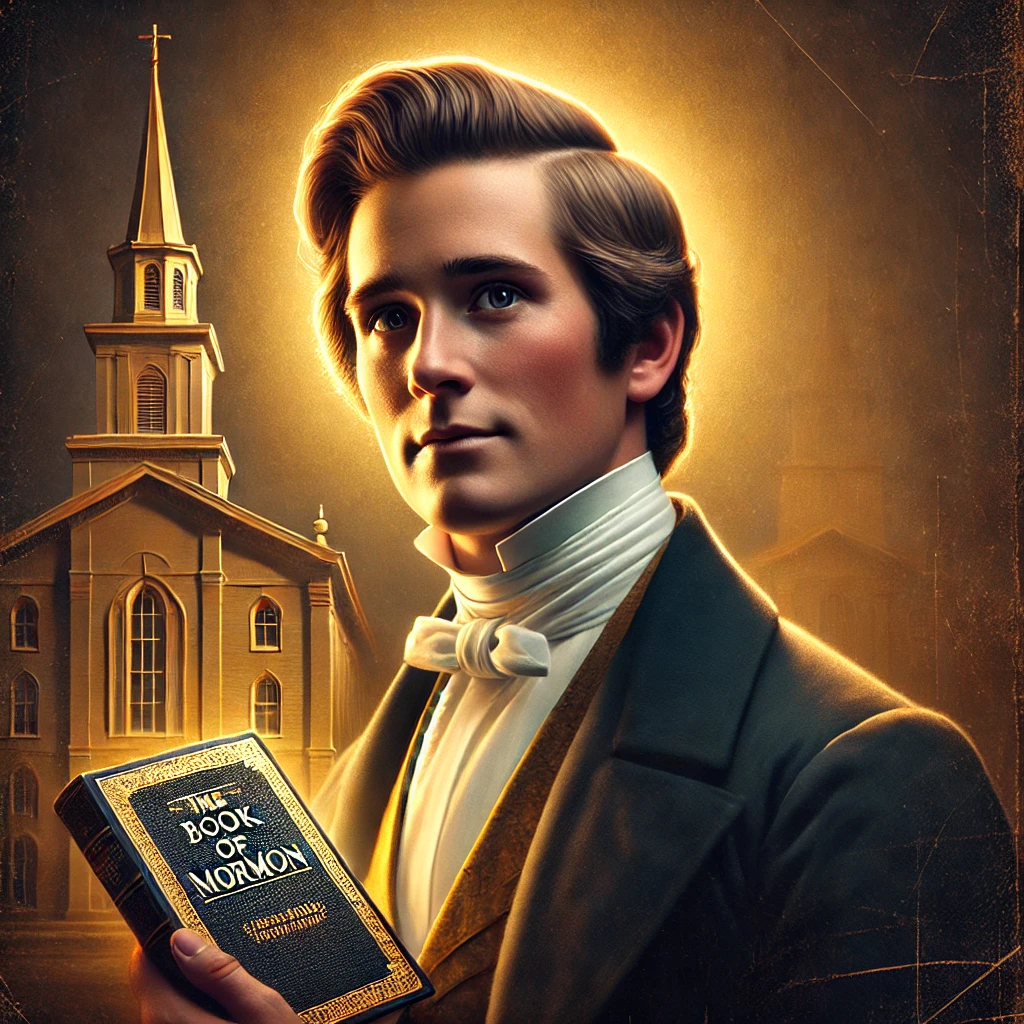Your cart is currently empty!

The Truth About Joseph Smith
•
Joseph Smith was controversial in his time, and he remains so today.
I spent the first 22 years of my life without a shadow of doubt that he was a Prophet, a messenger of God, and the most important man of his generation.
Have I now changed my mind?
As a young teenager, I developed a deep admiration for Joseph Smith. Among all the books we were encouraged to read in our strict religion, his stood out as the most engaging and entertaining.
We didn’t read thrillers or romance novels—perhaps that’s why I’m still single 😂. If Joseph Smith’s story is the most interesting book you’ve got, maybe it’s time to expand your horizons. That said, for many years, his story captivated me—it was all I had.
“He’s a shady dude.” – Joe Rogan
I laughed out loud when I heard that on his podcast with Wes Huff. I’m sure some Mormons did too, while others weren’t as amused.
Today, I want to reflect on how I truly feel about Joseph Smith and the lessons I’ve learned from his life.
Visionary Leader or Crazy Man?
Joseph Smith lived just 15 years and one month from the time he claimed to receive the Aaronic Priesthood until his death at age 44.
There’s plenty of criticism aimed at Joseph Smith, but one thing you can’t deny: he founded one of the largest religious movements of modern times—and in an astonishingly short period.
Most world religions trace their origins back over a thousand years. Mormonism, by contrast, emerged in the early 19th century.
When I think of Joseph Smith, I don’t picture a delusional 14-year-old. Even if his vision of God was fabricated, it required incredible intelligence and creativity.
In fact, the more of a “con man” Joseph Smith is accused of being, the more intelligent I believe he must have been. That’s why I don’t think he was a con man in the traditional sense. If he was deceiving others, I think he was unaware of it himself.
At 23, Joseph claimed to restore the Priesthood, and by 24, he organized the church.
Considering all he accomplished, it’s clear Joseph had a vision—whether divine or self-created. But does having a vision necessarily mean someone is delusional? Or could it reflect extraordinary creativity and leadership?
Prophet or Pedophile?
Joseph Smith reportedly had between 30 and 40 wives, some of whom were teenagers.
One of the most debated relationships is with Helen Mar Kimball, who was just 14 years old when she married Joseph in 1843. Many scholars suggest their marriage was “for eternity only,” with no evidence of sexual relations.
However, Joseph’s earlier relationship with 16-year-old Fanny Alger appears to have been sexual, according to historical accounts and testimonies from those close to him.
LDS historians often downplay these relationships, while Fundamentalist groups emphasize them. My belief is that Joseph likely had sexual relations with some of his wives. But whether or not he did, his teachings on polygamy were central to his life and legacy.
Did Joseph truly believe God commanded him to practice polygamy? Possibly. I see him as a deeply spiritual man whose pursuit of perfection led him to justify his carnal desires through a divine lens.
As I’ve written before, the pursuit of spiritual perfection can be dangerous. It often blinds people to their own human nature, which finds ways to manifest—sometimes in morally complex or questionable ways.
Was Joseph Smith a Prophet or a pedophile? I’ll explore this question in greater depth in a future article.
Did Joseph Really See God at 14?
If someone claimed to have seen God, led a normal life, and then passed away, I’d be skeptical.
But Joseph’s story is different. After his vision, he translated gold plates (or created them—either way, a remarkable feat), founded a church that now boasts millions of members, and lived an extraordinary life filled with both triumphs and controversies.
Here’s my question: Is it more plausible that someone who truly saw God would go on to live such a bold and ambitious life? Or is it Joseph’s ambition that drove him to fabricate his vision?
I don’t know what happened to Joseph that day. But I believe he experienced something profound—whether it was a divine revelation, an imaginative vision, or something else entirely.
Am I obligated to believe it? No. But what if it really was God?
As a boy, I prayed about Joseph Smith and felt what I believed was a powerful confirmation. That same feeling, however, came when I prayed about my father.
For more thoughts on this “powerful feeling,” subscribe because I will surely write about it.
Who Defines Joseph’s Legacy?
The LDS Church seeks to define Joseph Smith’s legacy. So do Fundamentalist groups—and so do his critics.
What’s indisputable is that Joseph achieved what few can: he’s remembered nearly 200 years later and will likely be studied for generations to come.
Love him or hate him, Joseph Smith was a religious revolutionary.
Conclusion
As a boy, I aspired to be like Joseph Smith. Today, I admire his understanding of power and religion—not necessarily his morality.
Joseph didn’t wait for permission to act. Neither did Jesus, Muhammad, or even Donald Trump. And neither should you.
Joseph was full of conviction, yet savvy enough to keep most people from thinking he was crazy. His story is a testament to the power of conviction—but also a cautionary tale about the dangers of going too far.
His legacy will continue to spark debate. Followers will adore him, critics will deride him, and those who remain objective will try to separate fact from bias.
Joseph Smith created stories that I’ll never forget—and I intend to learn from them.
You would also enjoy this article titled: Sex, Religion, And Justification: The Prophet And Polygamy
Follow me on X, Facebook, and Instagram for weekly updates!
I would be delighted to have you subscribe!
•

Leave a Reply
You must be logged in to post a comment.